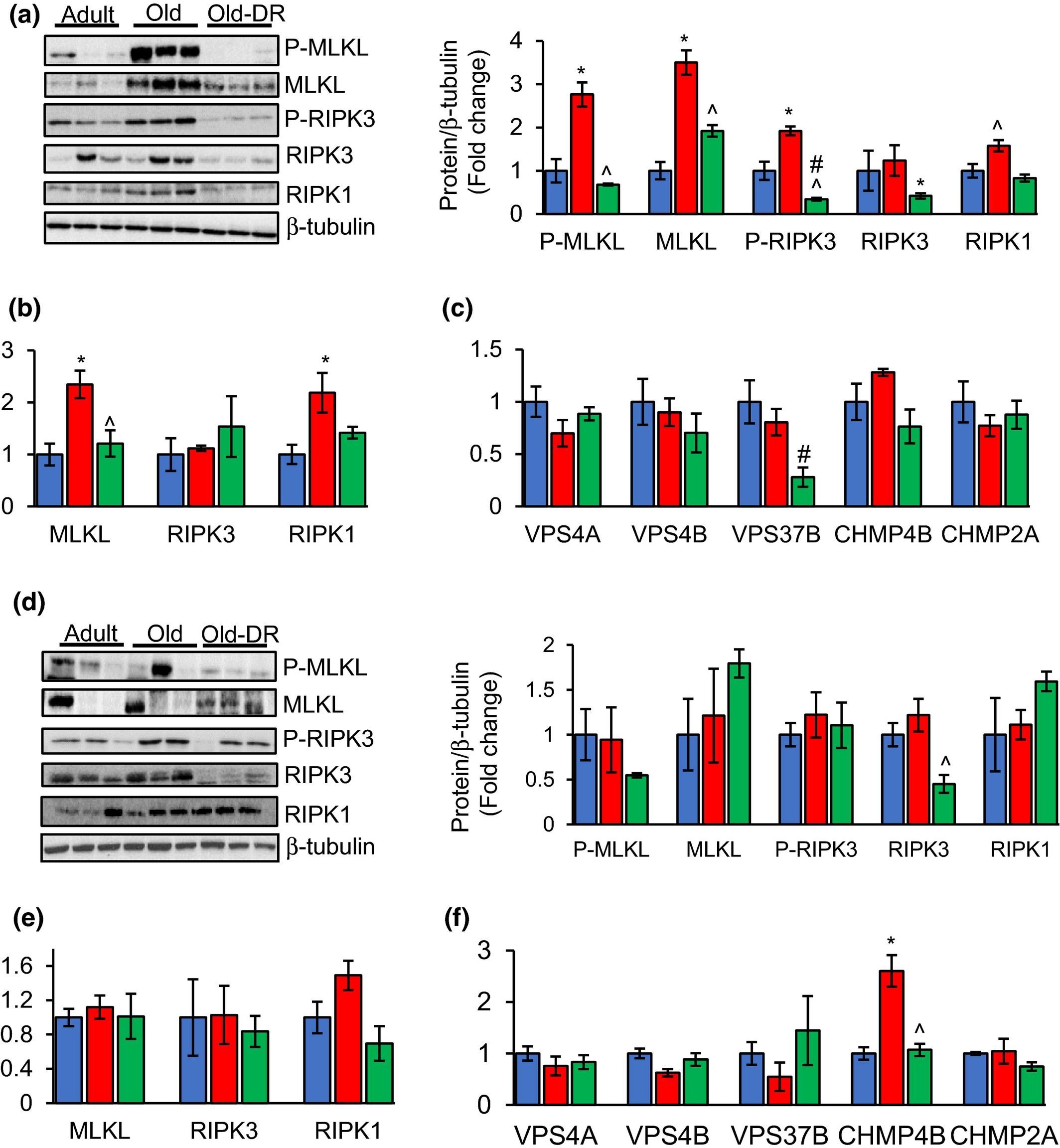Aging is characterized by the progressive increase in chronic, low‐grade inflammation termed “inflammaging,” which is believed to play an important role in the mechanism underlying aging.
Necroptosis is a newly identified programmed cell death pathway that is highly proinflammatory due to the release of cellular components that promote inflammation. To determine whether necroptosis might play a role in inflammaging, we studied the effect of age and dietary restriction (DR) on necroptosis in the epididymal white adipose tissue (eWAT), a major source of proinflammatory cytokines. Phosphorylated MLKL and RIPK3, markers of necroptosis, were increased 2.7‐ and 1.9‐fold, respectively, in eWAT of old mice compared to adult mice, and DR reduced P‐MLKL and P‐RIPK3 to levels similar to adult mice. An increase in the expression of RIPK1 (1.6‐fold) and MLKL (2.7‐fold), not RIPK3, was also observed in eWAT of old mice, which was reduced by DR in old mice. The increase in necroptosis was paralleled by an increase in 14 inflammatory cytokines, including the pro‐inflammatory cytokines IL‐6 (3.9‐fold), TNF‐α (4.7‐fold), and IL‐1β (5.1‐fold)], and 11 chemokines in old mice. DR attenuated the expression of IL‐6, TNF‐α, and IL‐1β as well as 85% of the other cytokines/chemokines induced with age. In contrast, inguinal WAT (iWAT), which is less inflammatory, did not show any significant increase with age in the levels of P‐MLKL and MLKL or inflammatory cytokines/chemokines. Because the changes in biomarkers of necroptosis in eWAT with age and DR paralleled the changes in the expression of pro‐inflammatory cytokines, our data support the possibility that necroptosis might play a role in increased chronic inflammation observed with age.









Comments are closed.